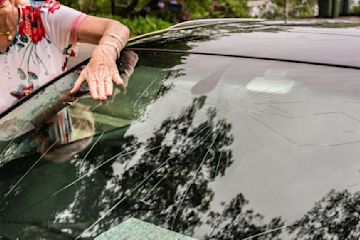Rental car insurance
Rental car insurance might mean the difference between the trip of your dreams and a financial nightmare. It’s important to plan for the unexpected, especially when driving a strange car around unfamiliar places.Choosing the right policy can be overwhelming—there are so many options to choose from and a multitude of different suppliers. Read our guide on rental car insurance to make sure you choose the right coverage for your journey.

What is rental car insurance?
Rental car insurance protects you against the cost of damages that may occur when renting a vehicle. There are three types of basic coverage: damage, theft, and third-party coverage.- Damage coverage limits the costs that the rental company can charge you for any repairs needed.
- Theft coverage protects you if the vehicle is stolen or damaged in a theft attempt.
- Third-party coverage protects you in case your rental car causes injury to another person or their property.
How does rental car insurance work?
Most rental cars come with some form of rental car insurance. even if it’s just a basic plan. In the event of an incident, you’ll pay an agreed amount, and the insurer pays the rest. For a small upfront increase in the price of the policy, you can usually reduce the excess amount you’d have to pay.Always check the fine print so you know what you’re covered for—and what you’re not. For example, a collision damage waiver could cover costs for bodywork damage, but not for window repairs.

When do I need car rental insurance?
It’s a good idea to have car rental insurance every time you rent a car, since you never know when you might need it. Most of us rent cars when we’re on vacation or travelling. This, combined with new traffic laws and unfamiliar terrain, can make accidents more likely. You may not need additional coverage for your rental car insurance if your personal car insurance policy extends to cover rentals, too. Check your current policy ahead of purchasing any add-ons.

Top tips for insuring your rental car
Before you rent any vehicle, it’s best to contact the company so that you’re clear on what is and isn’t covered during your trip— requirements can vary locally and nationally, so the terms could be different each time you rent a car.It’s also worth checking if the agency accepts debit cards when you reserve the car (as well as when you collect it), and whether they require the card to have embossed numbers—some companies still use the card to take an imprint, but this is becoming less common.

Rental car insurance is an insurance policy that protects you from incidents that happen while using a rental car. Depending on the policy you choose to pay for, you can be covered for damages, theft, or other incidents that may occur during your rental period.
Every rental vehicle should come with third-party and damage waiver insurance as standard coverage to effectively protect you from having to pay the full cost of any damages to the vehicle. However, you can also choose to add additional insurance, depending on your needs.
Rental car insurance is needed when you’re renting a car. If something happens while you are renting the car and there are damages or other costs to pay for, you will only be able to file a claim if you had rental car insurance at the time of the incident. You cannot obtain rental insurance to cover damages after they have already happened.
The best thing to do is assume that the person named in the insurance policy is the only person allowed to drive the rental car. Your friends or family may have their own comprehensive cover for their personal vehicles, but this doesn’t mean they are covered for rental cars, especially those where they are not named on the insurance policy.